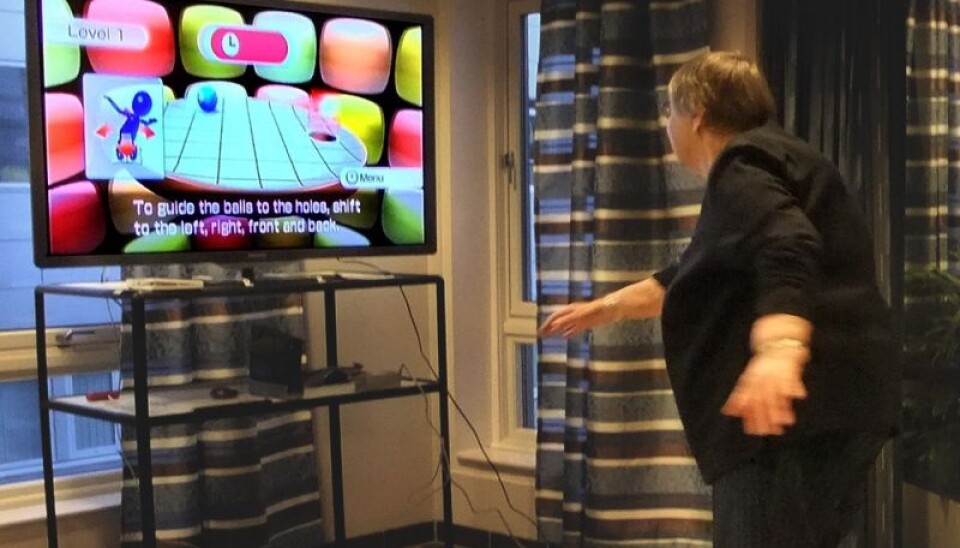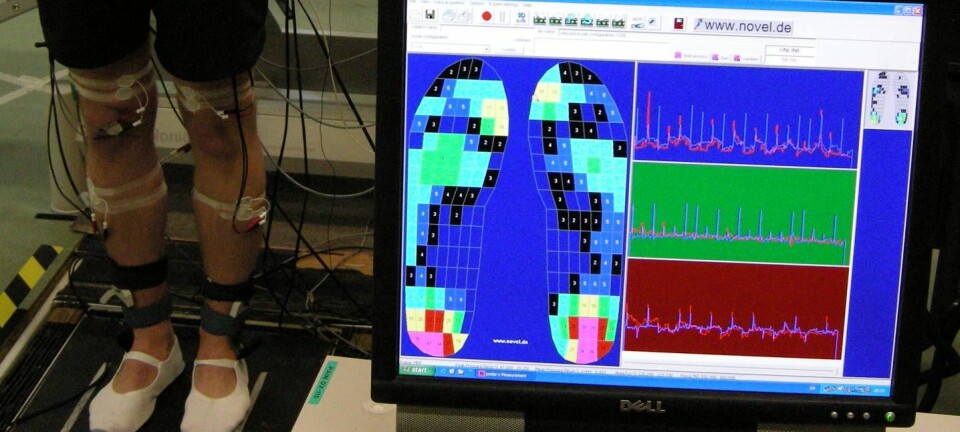
Geriatric gaming
Old people are saying “Yes Wii can” and have fun staying in shape with video games. Scientists now want to give them an array of suitable games.
Denne artikkelen er over ti år gammel og kan inneholde utdatert informasjon.
“The important thing is that the elderly are having fun,” says Ellen Brox. She’s a senior researcher at the Northern Research Institute in Tromsø (NORUT), and is developing video games for older people.
But there’s a method in the madness. These are TV games that require the use of your entire body.
The elderly find pleasure in moving their arms and legs to collect treasures on the TV screen. This helps them stay in shape, but that’s not all.
“Research shows it bolsters brain functions too,” says Brox.

The effect comes from this combination of physical and mental exercise, called exergaming or computer exercise.
Involves the whole body
These computer games use controls requiring players to move around. Hand controls detect arm motion, pressure-sensitive mats catch footwork and cameras see the motion of the entire body.
“We are also trying smart phones that can register motion by measuring acceleration,” explains Brox.
She participated in the project Join-In, part of the European programme Ambient Assisted Living. The idea is to provide the elderly with an opportunity to exercise at home, yet in a social community by linking the players via the internet.
Maintaining steady regular exercise routines and training together with others are good ways to deter a loss of motivation.
"web gaming can give the elderly this opportunity opportunity even though they might have trouble getting out of their homes,” says Brox.
Too fast a pace
She has also tried the exercise game out at a welfare service facility for the elderly. The participants used a Nintendo Wii. It has a remote control that senses arm motion.
The researchers discovered what the older people fancied and didn’t fancy, like Wii Mario Cart which is way too fast. The old people didn’t have a chance to react to what was going on.
"But in general they had a great time. They also like monitoring their progress as time passed,” says Brox.
Created by professionals
This is why Broz and her colleagues now want to develop new exercise games especially adapted to seniors.
“The games need to have simple graphics and only demand one task at a time. We are still tossing a bunch of ideas around, but maybe the players will be given a task of stretching to get objects down, or move them from one shelf to another,” she says.
Both the movements encouraged by the game and the mental challenges are important. Physical therapists and nurses are among those who are contributing to the game development.
A special advantage for older people with physical disablements is that small movements of the controls can be transformed into larger movements as they see themselves and the other network participants as avatars on the screen.
"Everyone is on the same level in a virtual world," says Brox.
No worry about computer phobia
The games will be developed in collaboration with NORUT and Norwegian Centre for Integrated Care and Telemedicine in Tromsø, and Carlow University outside Dublin.
"We will use open platform solutions that are cheap for the users,” says Brox.
One of the main concerns is that the users need not think of exergaming as a computer game. A device will be connected to their TV and it can be started with the normal remote.
“Old people don’t need to think of this as a PC. Even ones with acute computer phobia can use these games,” says Brox, illustrating this with a story:
“An elderly lady told me she had never used a computer. All she had ever done was play solitaire, on the screen!”
-----------------------------------------------------
Read this article in Norwegian at forskning.no
Translated by: Glenn Ostling
































